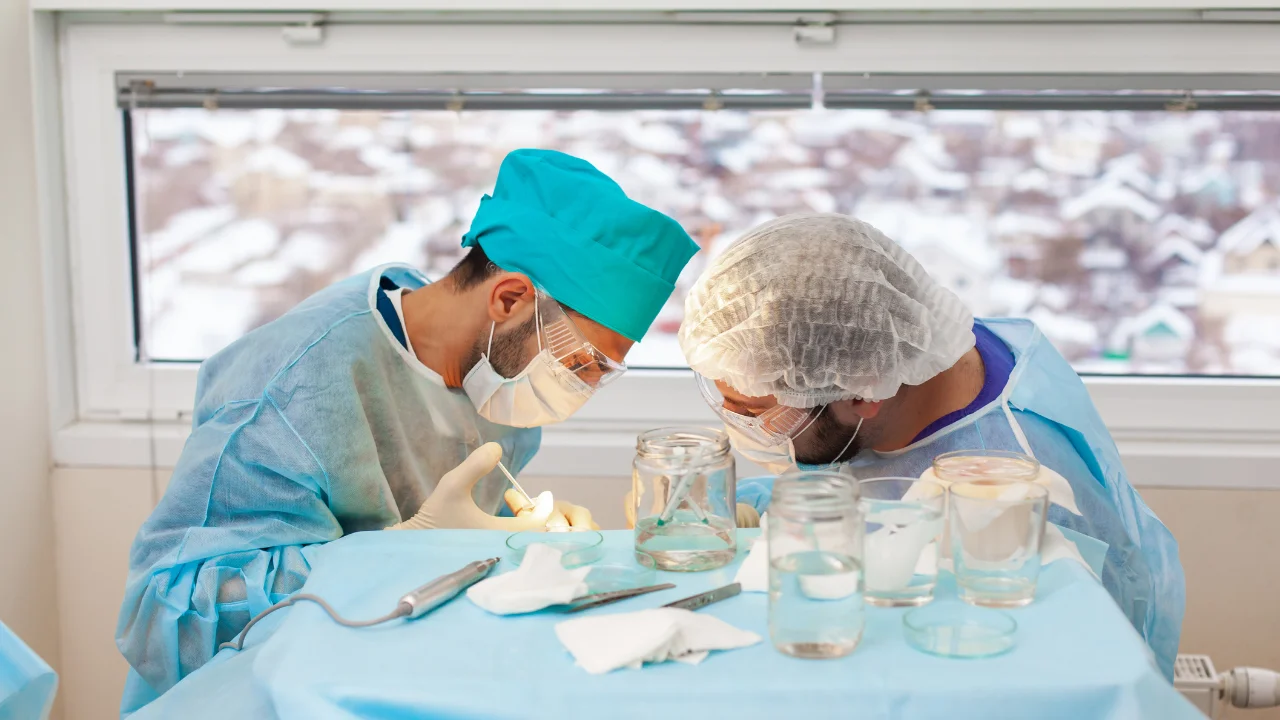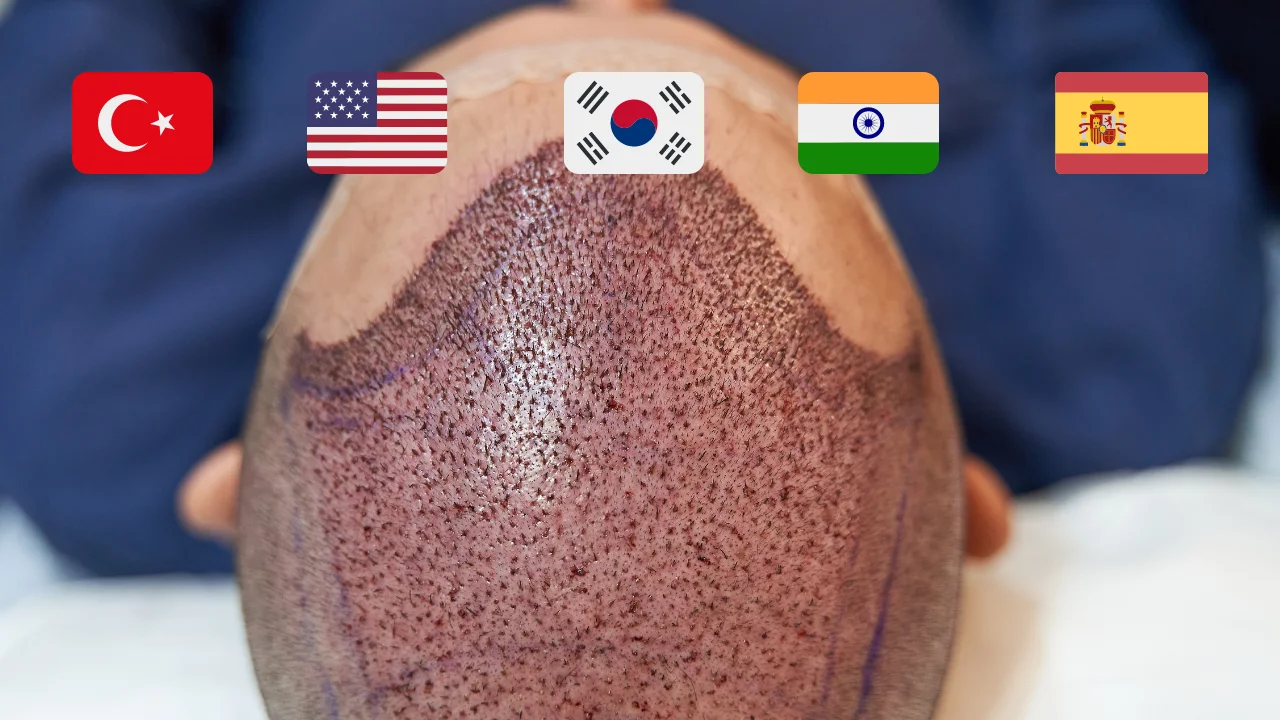Hair Transplant Center Selection: 20 Important Factors

Hair loss can be a distressing experience, affecting not only our physical appearance but also our self-esteem. Thankfully, advancements in medical technology have made hair transplantation a viable solution for those seeking to restore their hair. However, choosing the right hair transplantation center is crucial to ensure a successful outcome. In this comprehensive guide, we will explore the key factors to consider when selecting a hair transplantation center. From expertise and reputation to technological advancements and patient reviews, we will leave no stone unturned. So, let’s dive into the world of hair transplantation and find the perfect center for your hair restoration needs.
Hair Transplantation Center Selection: Factors to Consider
When embarking on a journey to find the best hair transplantation center, several important factors should influence your decision. Let’s take a closer look at each of these factors to ensure you make an informed choice.
1. Expertise and Credentials
When it comes to something as crucial as hair transplantation, expertise and credentials are paramount. Look for a center that boasts a team of highly skilled and experienced surgeons specializing in hair restoration procedures. Ensure that the surgeons are board-certified and have extensive training in the field of hair transplantation. Furthermore, it is beneficial to check if the center’s surgeons are members of reputable professional organizations such as the International Society of Hair Restoration Surgery (ISHRS).
2. Cutting-Edge Technology and Techniques
Advancements in technology and techniques have revolutionized the field of hair transplantation. Ensure that the center you choose utilizes the latest tools and methodologies for optimal results. Techniques such as Follicular Unit Extraction (FUE) and Direct Hair Implantation (DHI) have gained popularity due to their precision and natural-looking outcomes. Additionally, the center should offer a range of options, including robotic-assisted hair transplantation, to cater to individual needs.
3. Reputation and Success Rate
A reputable hair transplantation center will have a track record of successful procedures and satisfied patients. Take the time to research the center’s reputation by reading patient testimonials, online reviews, and examining before-and-after photos. A high success rate and positive feedback from previous patients are indicators of the center’s expertise and dedication to delivering exceptional results.
4. Safety and Sterilization
Safety should always be a top priority when considering a hair transplantation center. Ensure that the center adheres to strict sterilization protocols and maintains a clean and hygienic environment. The center should follow international standards and guidelines to minimize the risk of infections and complications during and after the procedure.
5. Customized Treatment Plans
Each individual’s hair restoration needs are unique, and a reputable center understands this. Look for a center that offers personalized treatment plans tailored to your specific requirements. A comprehensive consultation with the surgeon should be conducted to assess your hair loss pattern, donor hair availability, and desired outcomes. This personalized approach ensures that you receive the most effective and suitable treatment for your condition.
6. Natural-Looking Results
One of the primary goals of hair transplantation is to achieve natural-looking results. Ensure that the center you choose has a strong portfolio of successful procedures that demonstrate a natural hairline, proper density, and overall aesthetic appeal. This can be assessed by examining before-and-after photos and speaking with previous patients who have undergone the procedure at the center.
7. Patient Support and Aftercare
Hair transplantation is not a one-time event but rather a journey towards regaining your confidence. Look for a center that offers comprehensive patient support and aftercare services. This includes regular follow-up appointments, post-operative instructions, and a dedicated patient support team to address any concerns or questions you may have during the recovery process. A reputable center will prioritize your well-being and provide ongoing support to ensure a successful and comfortable hair restoration journey.
8. Transparent Pricing and Financing Options
Hair transplantation is an investment in yourself, and it’s essential to have a clear understanding of the costs involved. Choose a center that provides transparent pricing, outlining all the expenses associated with the procedure. Additionally, inquire about any financing options or payment plans that the center may offer to make the treatment more accessible and affordable for you.
9. State-of-the-Art Facilities
A well-equipped and modern facility can significantly contribute to a positive hair transplantation experience. Look for a center that has state-of-the-art facilities, including advanced surgical theaters, sterile environments, and cutting-edge technology. An aesthetically pleasing and comfortable clinic environment can enhance your overall treatment experience.
10. Location and Accessibility
Consider the location and accessibility of the hair transplantation center, especially if you need to travel for the procedure. Choosing a center that is conveniently located and easily accessible can save you time and minimize travel-related stress. Additionally, check if the center offers any assistance with travel arrangements or accommodations for out-of-town patients.
11. Educational Resources and Consultations
A reputable hair transplantation center understands the importance of patient education. Look for a center that provides educational resources, such as informative articles, blog posts, and videos, to help you make an informed decision. Additionally, a thorough and detailed consultation with the surgeon should be offered, allowing you to discuss your concerns, expectations, and treatment options in depth.
12. Ethical Practices and Patient Rights
Ethical practices and patient rights should be at the forefront of any reputable hair transplantation center. Ensure that the center follows ethical guidelines and respects patient autonomy. This includes obtaining informed consent, protecting patient confidentiality, and providing complete transparency regarding the procedure and potential risks.
13. Collaboration with Other Specialists
Hair loss can sometimes be a symptom of an underlying medical condition. Choose a center that collaborates with other specialists, such as dermatologists or endocrinologists, to ensure a comprehensive evaluation of your hair loss condition. A multidisciplinary approach can lead to more accurate diagnoses and tailored treatment plans.
14. Availability of Non-Surgical Options
While hair transplantation is a highly effective solution for hair restoration, it may not be suitable for everyone. Look for a center that offers a range of non-surgical options, such as medical therapies or low-level laser therapy, for individuals who are not eligible for or prefer non-invasive approaches. This demonstrates the center’s commitment to providing holistic hair loss solutions.
15. Years of Experience
Experience plays a vital role in the success of hair transplantation procedures. Choose a center that has been operating for several years and has a long history of performing hair restoration surgeries. A well-established center is likely to have a wealth of experience, a refined process, and a comprehensive understanding of different hair loss patterns and treatment techniques.
16. Partnerships with Reputable Institutions
Collaborations and partnerships with renowned institutions and organizations reflect a hair transplantation center’s commitment to excellence and continuous learning. Look for centers that have affiliations with reputable universities, research organizations, or industry associations. These partnerships demonstrate the center’s dedication to staying abreast of the latest advancements and contributing to the field of hair restoration.
17. Online Presence and Reviews
In the digital age, online presence and reviews can provide valuable insights into a hair transplantation center’s reputation and patient satisfaction. Explore the center’s website, social media platforms, and online review sites to gauge the overall sentiment and experiences shared by previous patients. While individual reviews can vary, pay attention to recurring themes or patterns in the reviews to form a more accurate assessment of the center’s quality of service.
18. Referrals and Recommendations
Seeking referrals and recommendations from trusted sources can be instrumental in selecting the right hair transplantation center. Consult with your primary care physician, dermatologist, or friends and family members who have undergone successful hair restoration procedures. Their firsthand experiences and insights can provide valuable guidance in making your decision.
19. International Patient Services
If you are considering traveling abroad for your hair transplantation procedure, it is crucial to choose a center that offers comprehensive international patient services. Look for centers that have dedicated teams to assist with travel arrangements, accommodation, language interpretation, and post-operative care for international patients. Clear communication and seamless coordination can contribute to a positive treatment experience.
20. Innovation and Research
A center that values innovation and actively participates in research demonstrates a commitment to advancing the field of hair transplantation. Stay updated on the center’s involvement in clinical trials, research studies, or the development of new techniques. This dedication to progress indicates that the center is at the forefront of hair restoration advancements and can offer cutting-edge treatment options.
Frequently Asked Questions (FAQs)
To address common concerns, let’s dive into some frequently asked questions about hair transplantation center selection:
How do I know if a hair transplantation center is reputable?
A reputable hair transplantation center will have a combination of factors such as expertise, positive patient reviews, affiliations with professional organizations, and a track record of successful procedures. Thorough research, consultations, and referrals can help you gauge a center’s reputation.
Is hair transplantation safe?
Hair transplantation is generally considered safe when performed by qualified and experienced surgeons in a sterile environment. However, like any surgical procedure, it carries inherent risks. It is essential to choose a center that prioritizes safety, adheres to strict sterilization protocols, and provides thorough pre- and post-operative care.
How long does the recovery process take after hair transplantation?
The recovery process can vary from individual to individual. Generally, the initial healing period takes about one to two weeks, during which you may experience some redness, swelling, or scabbing. Hair growth typically starts within three to four months, with full results visible after one year.
Can I undergo hair transplantation if I have a limited donor hair supply?
Individuals with a limited donor hair supply can still benefit from hair transplantation. Surgeons will assess the donor area’s quality and quantity during the consultation to determine the feasibility of the procedure and the number of grafts that can be harvested.
What factors affect the cost of hair transplantation?
The cost of hair transplantation can vary depending on factors such as the extent of hair loss, the number of grafts required, the surgical technique used, the center’s location, and additional services provided. It is essential to obtain a comprehensive breakdown of the costs and discuss any financing options available.
What are the potential risks and complications of hair transplantation?
While hair transplantation is generally safe, potential risks and complications may include infection, bleeding, scarring, unnatural-looking results, or the need for additional procedures. Choosing a skilled surgeon and following post-operative care instructions diligently can help minimize these risks.
Conclusion
Selecting the right hair transplantation center is crucial for a successful and satisfying hair restoration journey. Consider factors such as expertise, reputation, technology, patient reviews, and personalized treatment plans. Additionally, prioritize safety, transparency, and ongoing support and aftercare. By conducting thorough research, seeking referrals, and asking the right questions, you can find the perfect center to address your hair restoration needs and achieve natural-looking, long-lasting results.
In conclusion, the process of selecting a hair transplantation center requires careful consideration and research. By evaluating factors such as expertise, reputation, technology, and patient reviews, you can make an informed decision that aligns with your hair restoration goals. Remember to prioritize safety, personalized treatment plans, and ongoing support to ensure a positive experience throughout your hair restoration journey.
Don’t let hair loss hold you back. Take the first step towards regaining your confidence and a full head of hair by choosing the right hair transplantation center. With the advancements in technology and the expertise of skilled surgeons, you can achieve natural-looking results that exceed your expectations.



